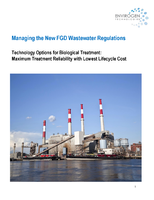IPC comments on European Parliament's Environment Committee decision.
Share:
Press Release Summary:
IPC was disappointed at European Parliament's Environment Committee vote to include broad families of chemicals, such as organobromines, in Annex III for priority assessment. Of specific concern was how process outlined in amendments approved today does not define rigorous scientific methodology. According to Fern Abrams of IPC, proposed process could "lead to additional substance restrictions that provide neither environmental nor human health benefits."
Original Press Release:
European Parliament Environment Committee Vote Puts TBBPA on Priority Assessment List
IPC Continues Advocacy for Rigorous Scientific Assessment
BANNOCKBURN, Ill., USA - IPC - Association Connecting Electronics Industries® today expressed disappointment in the vote by the European Parliament's Environment Committee to include broad families of chemicals, such as organobromines, in Annex III for priority assessment. While an outright ban of these chemicals has been averted in this vote, the committee's decision falls far short of supporting a rigorous scientific assessment that would ensure protection of the environment and human health.
IPC is concerned that the process outlined in the amendments approved today does not define a rigorous scientific methodology. The proposed process "lacks a rigorous scientific methodology and could therefore lead to additional substance restrictions that provide neither environmental nor human health benefits," says Fern Abrams, IPC director of environmental policy and government relations.
The inclusion of broad families of chemicals, such as all organobromines, for priority assessment under Annex III is impractical and unscientific. While some organobromines, such as polybrominated biphenyls (PBBs), have been identified as toxic, restricted under the RoHS Directive and voluntarily withdrawn from the market, other organobromines, such as TBBPA, have been found to be safe for human health and the environment by both the World Health Organization and the European Commission Scientific Committee on Health and Environmental Risks (SCHER).
In direct lobbying efforts over the past year, IPC has urged the European Union to amend the RoHS Directive to introduce rigorous scientific methodology aligned with the comprehensive chemicals evaluations under the REACH (Registration, Evaluation, Authorisation and Restriction of Chemicals) regulation.
IPC continues to lobby to ensure the RoHS revision's process reflects sound scientific methodology. IPC's white paper, "Recasting the RoHS Directive: An Opportunity to Solidify its Scientific Basis in Support of Comprehensive Environmental Regulation," advocates for a revised RoHS to be based on sound science and fully aligned with the REACH methodology for substance restrictions.
The European Parliament is currently scheduled to vote in July on the Environment Committee's recommendations for recasting the RoHS Directive. The Environment Committee is also scheduled to vote on the related Waste Electrical and Electronic Equipment (WEEE) Directive later this month, with a plenary vote to take place in July.
About IPC
IPC (www.IPC.org) is a global trade association based in Bannockburn, Ill., dedicated to the competitive excellence and financial success of its 2,700 member companies which represent all facets of the electronics industry, including design, printed board manufacturing, electronics assembly and test. As a member-driven organization and leading source for industry standards, training, market research and public policy advocacy, IPC supports programs to meet the needs of an estimated $1.7 trillion global electronics industry. IPC maintains additional offices in Taos, N.M.; Arlington, Va.; Garden Grove, Calif.; Stockholm, Sweden; Moscow, Russia; and Shanghai and Shenzhen, China.




